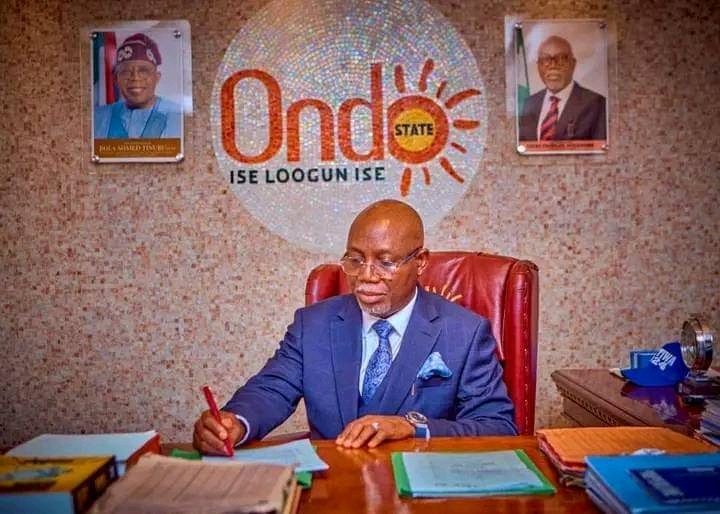
As landlords in the Federal Capital Territory (FCT) and other parts of the country reportedly increase their rents perhaps in response to the rising cost of living in the country, they should be considerate of their tenants who are also suffering the hardship caused by the economic downturn.
Recent news reports indicate that tenants are groaning as landlords, particularly in Abuja, have increased their rents astronomically. Many of the landlords might have resorted to rent increase to boost their disposable income at this time of unprecedented increase in the cost of living, there is need to exhibit compassionate concern for the tenants who may not have the opportunity of raising their own disposable income to be able to pay the new rent if raised too high. Landlords arealso enjoined to ensure that their decisions in this regard are in tandem with the provisions of the relevant law, where such exists, that protects the interests of both the tenants and the house owners.
No doubt, shelter is a basic human need, which is also critical to the enhancement of the dignity of the human person. The indiscriminate rent hike being suffered by tenants across the country is a fall out of government’s failure to provide adequate and affordable housing for the citizens. It is unacceptable and shameful.
Thoughsome past administrations tried to expand activities in the housing sector in the form of schemes, mortgage finance and reforms, especially at the state level, more needs to be done to achieve the housing for allagenda. Some of the housing estates meant for the poorhave been taken over by the rich,forcing many Nigerians to become tenants. particularly in the cities. In most developed economies, the government sees the housing sector as a very important one that helps to push economic growth. The President Bola Tinubu’s administration has a responsibility of ensuring access to housing by all needy citizens. Particularly with the increased rural-urban migration and greater pressure on the cities, a more pro-active approach to housing will be required to check indiscriminate rent increase by landlords.
One Usman Tijani, an information technology expert who lives in Phase 4, Kubwa, Abuja said before he moved into the one-bedroom apartment with his family last year, the landlord said he would not increase rent, only for him to get a notice four weeks ago increasing his rent from N600,000 to N850,000 per annum. Another tenant, a fashion designer, Adepoju Ronke, said the rent for her one-room-self-contained apartment at Dei-Dei was raised from N150,000 to N250,000 per annum, as a bank teller living in Dutse, Majekodumi Isaac, was served an eviction notice for his inability to pay the hike in the rent for his two-bedroom apartment from N550,000 to N700,000 yearly. A landlord, Paschal Chukwu, whose house is located in Wuse district, defended rent increase thus:
“My tenants have been complaining that I increased rent, but the truth is that they are not considering the fact that landlords are also going to the same market with them. We did not build the houses now, but with the price of everything going up, we too have to increase ours because it is our business and we have to survive.”
It was learnt that it is the same traumatic experiences in other big cities like Lagos, and Port Harcourt in Rivers State. It is all about housing deficit in the country. The government should take practical steps to address it. It was learnt that in 1991, Nigeria’s housing deficit was at 7 million. It rose to 12 million in 2007, 14 million in 2010, and 20 million units in 2018, and in 2023, it hadrisen to an estimated 28 million units. Besides, a study conducted by the Central Bank of Nigeria (CBN) put the formal housing production in the country at approximately 100,000 units per year.
Experts consider this as highly inadequate because at least 1,000,000 units are needed yearly to bridge the 18 to over 22 million housing deficits by government’s target date of 2033 (if the population continues at its annual growth rate of 3.5 per cent). The professionals projected that over N21 trillion investment and partnership with the government would be needed by the real estate sector to be able to build houses that will be sufficient for the population as rents escalate in the urban centres.
At different times, experts have called for a review of the National Housing Policy with a view to addressing the financial and cultural factors hindering the ability of the average Nigerian to own a house. That should happen now.
One of the things to consider is the restructuring of the mortgage system in the country to really meet the needs of poor Nigerians who find it difficult to build a house. The truth is that the challenge of housing deficit continues because millions of these poor people cannot afford the short-term financing provided by the mortgage institutions.
We also advise the government and other stakeholders to sincerely address the challenge of property registration, the process of which is replete with corrupt practices. A way out of this is to simplify the process and digitalise it to reduce human participation. It is very crucial to tackle the problem of constant increase in the cost of building materials. Thereshould be serious investment in local production of building materials that should be supervised by professionals to guarantee the required standards.Indeed, Nigerians need to be encouraged and assisted to provide shelter for themselves.





